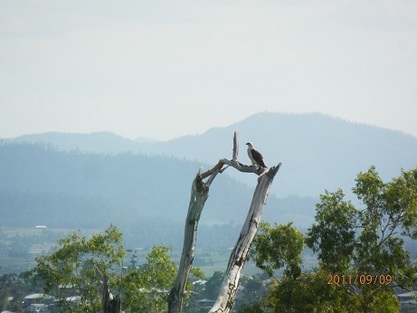
The Ospreys have been successful in protesting their nest from the air by day but on Wednesday night the nest came under attack and went crashing to the ground: eggs and all. We think a sand goanna climbed the tree to steal the eggs and in the ensuring battle the nest was destroyed. Dee and John told me that on Thursday the birds cried in alarm all day flying in circles around the nest debris. Since then the female has sat in silent vigil on the tree that once held her nest.
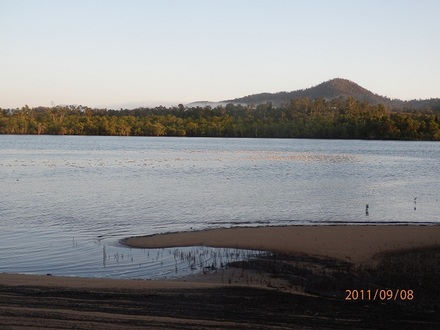
These changes are in line with a change in agricultural use in our local area where in the past cane dominated now we have bananas. This is a crop not suited to our high rainfall region, especially in a region that has such a highly sensitive and important marine ecosystem including “The Great Barrier Reef”. Bananas are a crop that has large areas of open soil where cane is a grass that covers the soil, bananas use significantly more fertilizers, herbicides, and pesticides than cane and in addition also use aerial spraying.
Bananas also require that machinery is in ‘the paddock’ all year, even during our wettest months causing constant churning up of the soil, where cane farming only requires access to ‘the paddocks’ during our dry months and in this period if even small amounts of rain occur harvesting has to stop. As for ground cover in banana farms been a solution it is almost laughable anyone with a yard knows that stop using your driveway for a few days during a wet period and drive over your lawn and see what happens, it turns to mud, so what is a bit ground cover under the wheels of a tractor seven days a week going to do to stop this problem?
Above all it is the insatiable need for water by bananas that seals the fate of our aquatic environment, this need results in the majority of farms located very close to our rivers and creeks so water can be cheaply pumped to the farm. The water that then returns to system is loaded with a cocktail of pollutants and full of silt.
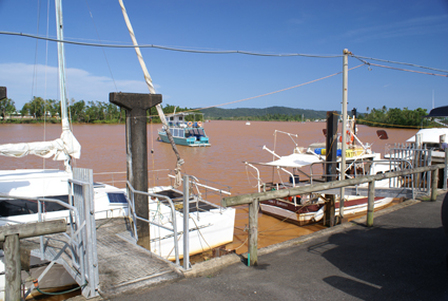
The water only ran red when we had large amounts of rain in excess of 150mm in a short period. Now the fish are gone and so are the dolphins and the river is dirty almost all year, running red when we have as little as 50mm of rain in a day. In 25 years bananas have done more damage than cane has done in 100 years, it is a tragedy on our doorstop.
Perry Harvey formally of Friendship Cruises did glass bottom boat tours around Purtaboi Island near Dunk Island looking at the stunning fringing reefs. These fringing reefs are gone and over the past decade one would be lucky to see their hand in front of their face swimming around the Island. This level of destruction has now spreading further offshore to the main reef. There is no simple solution to this, however it must be noted that bananas are the wrong crop for this region and they need to be moved elsewhere, such as to the Ord River region, which has the available water without the high rainfall and resultant runoff. There was an attempt to set up large scale banana farming in the Ord region, however high transport costs precluded any expansion. There will always be a cost in this but what does the consumer pay every time we have a cyclone in this clearly cyclone prone area and more importantly what is the environmental cost in having bananas in the wet tropics? Are you willing to pay the price or sit on your hands and loose so much?
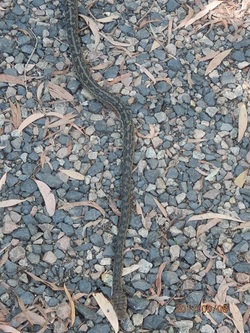
The Coquette Point sunbirds are in a frenzy feeding babies and building more nests. I never tire of watching these beautiful birds.
The male sunbird has been regularly raising the alarm as he stands guard over the nest. Each time I check to see what is the problem and found this young amethystine python on the move hungry for a feed.
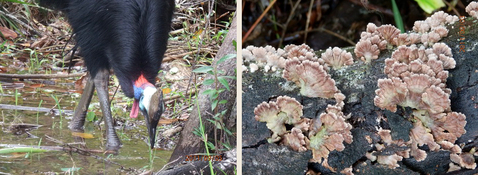
I could not see what he was eating, it was possibly snails or fungi.
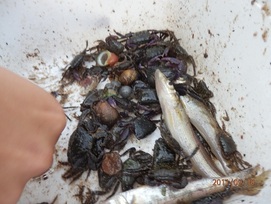
All over the forest floor spectacular fungi is growing on trees trunks that fell to cyclone ‘Yasi’.
Soldier crabs are still hiding under rocks and mangrove roots at Coquette Point. However young Innisfail anglers, know where to find them. Lots of fun and screams as Kerin and Co collected bait this afternoon for an evening of fishing on the river.
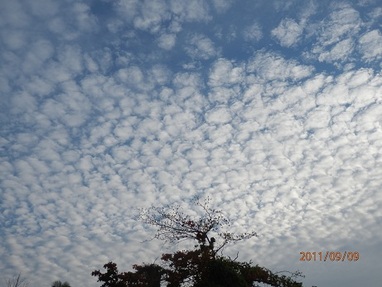
Cheers for now,
Yvonne C.


